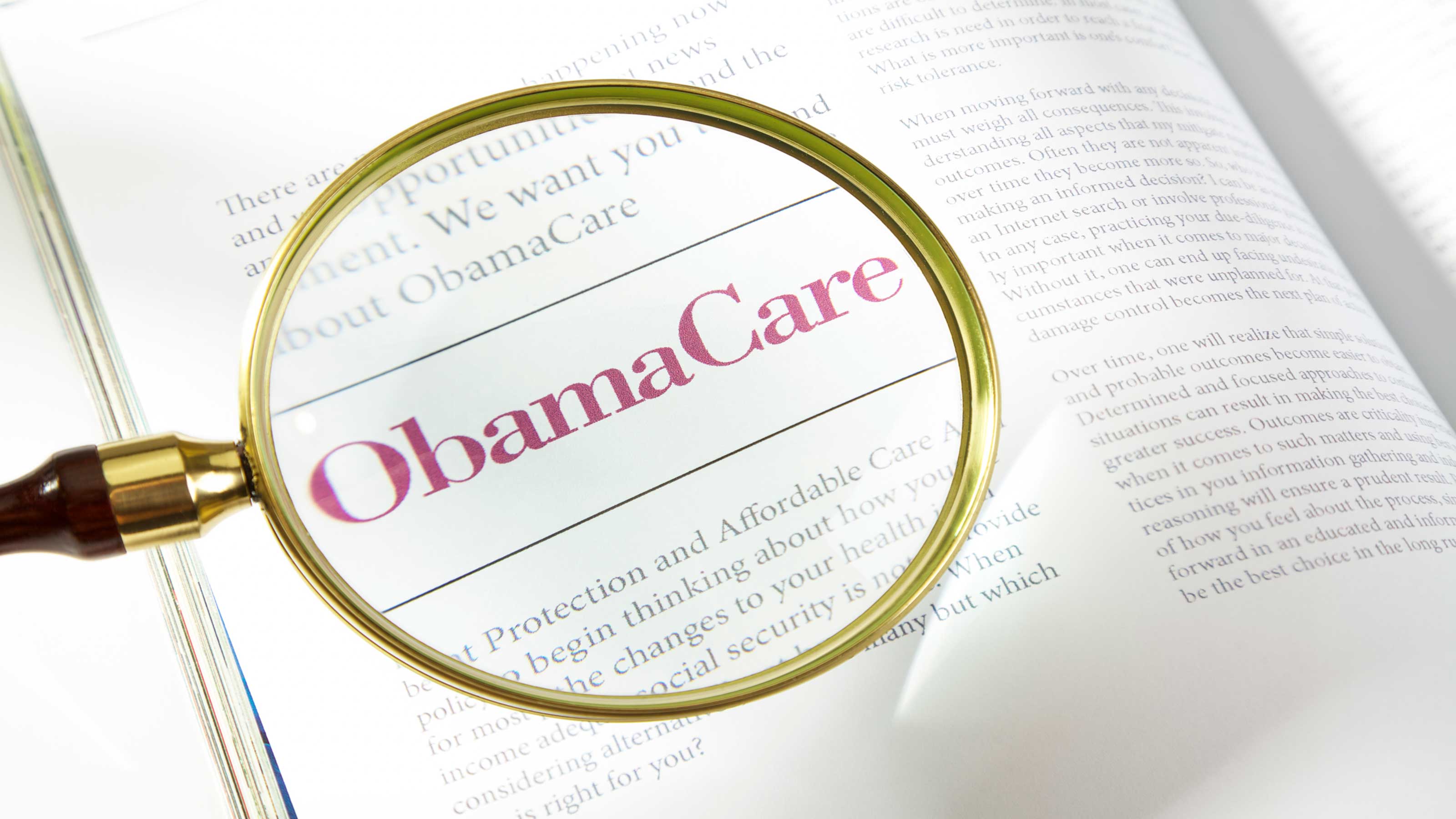How to Navigate an Extra-Busy Summer Travel Season
Tips for beating the exceptional crowds expected this year and keeping your vacation budget manageable.


Profit and prosper with the best of Kiplinger's advice on investing, taxes, retirement, personal finance and much more. Delivered daily. Enter your email in the box and click Sign Me Up.
You are now subscribed
Your newsletter sign-up was successful
Want to add more newsletters?

Delivered daily
Kiplinger Today
Profit and prosper with the best of Kiplinger's advice on investing, taxes, retirement, personal finance and much more delivered daily. Smart money moves start here.

Sent five days a week
Kiplinger A Step Ahead
Get practical help to make better financial decisions in your everyday life, from spending to savings on top deals.

Delivered daily
Kiplinger Closing Bell
Get today's biggest financial and investing headlines delivered to your inbox every day the U.S. stock market is open.

Sent twice a week
Kiplinger Adviser Intel
Financial pros across the country share best practices and fresh tactics to preserve and grow your wealth.

Delivered weekly
Kiplinger Tax Tips
Trim your federal and state tax bills with practical tax-planning and tax-cutting strategies.

Sent twice a week
Kiplinger Retirement Tips
Your twice-a-week guide to planning and enjoying a financially secure and richly rewarding retirement

Sent bimonthly.
Kiplinger Adviser Angle
Insights for advisers, wealth managers and other financial professionals.

Sent twice a week
Kiplinger Investing Weekly
Your twice-a-week roundup of promising stocks, funds, companies and industries you should consider, ones you should avoid, and why.

Sent weekly for six weeks
Kiplinger Invest for Retirement
Your step-by-step six-part series on how to invest for retirement, from devising a successful strategy to exactly which investments to choose.
To help you understand what is going on in the travel sector, our highly experienced Kiplinger Letter team will keep you abreast of the latest developments and forecasts (Get a free issue of The Kiplinger Letter or subscribe). You'll get all the latest news first by subscribing, but we will publish many (but not all) of the forecasts a few days afterward online. Here’s the latest…
The upcoming summer travel season will be extraordinarily busy and exceed pre-pandemic levels, though it will look a bit different than the past two summers when Americans caught the travel bug after years of COVID-19 restrictions. On the wane is so-called revenge travel, a post-pandemic phenomenon in which Americans who were desperate to make up for lost time booked exotic, and often expensive, “bucket list” adventures.
This year, the trend has shifted back to more traditional vacation destinations and cost-conscious practices. But overall travel volume will hit historic highs this summer. Online travel agency Expedia says flight searches are up 25%, overall for June through August, compared with the same time last year. And interest in international destinations across Europe and Asia is up by triple digits. The number of Americans who eventually book a trip this summer will be on par with last summer. But globally, 4.7 billion people are expected to travel in 2024, compared with 4.5 billion in 2019, with much of that travel occurring this summer. That means that flights, hotels and attractions in the United States and abroad will be crowded to levels unseen in years.
From just $107.88 $24.99 for Kiplinger Personal Finance
Become a smarter, better informed investor. Subscribe from just $107.88 $24.99, plus get up to 4 Special Issues

Sign up for Kiplinger’s Free Newsletters
Profit and prosper with the best of expert advice on investing, taxes, retirement, personal finance and more - straight to your e-mail.
Profit and prosper with the best of expert advice - straight to your e-mail.
Domestic airfares will remain in line with or just slightly higher than last summer. Fares will begin to rise in May, reaching a peak at the end of May and early June.
To save money, avoid holiday weekends and travel during late August, if possible, when airfares will drop more than $100.
International airfare will be a mixed bag. Overall, prices will drop for most regions of the world, compared with last year, though they will still be higher than pre-pandemic levels. But airfares will fluctuate significantly depending on the destination, so bargain airfares won’t be found everywhere.
Avoid holiday weekends and travel during late August, when airfares will drop more than $100.
Flight disruptions are a definite possibility this summer as airlines struggle to put enough planes in the air to meet demand. Some carriers will be forced to trim their schedules to cope with a lack of available planes due to production problems at aircraft makers Boeing and Airbus.
When planning a trip, be wary of major events taking place locally that boost prices and shrink availability for hotels, restaurants and car rentals.
- For Europe, avoid Paris during the Olympics in July and August.
- The same goes for Germany from mid-June to mid-July, when it hosts the quadrennial European Football [soccer] Championship.
- And singer Taylor Swift’s European tour this summer will cause price and availability issues in every city where she performs.
- Domestically, political party conventions in Milwaukee (July) and Chicago (August) mean accommodations will be at a premium during those events, if they’re available at all.
If you’re hitting the road this summer, gas prices in the U.S. should be similar to or slightly higher than last year, ranging from about $3.50 to $4 a gallon, although some states will be much more expensive. Still, unforeseen international issues, like a worsening situation in the Middle East, could suddenly boost the national average well above $4.
Car rental prices will be slightly above last summer’s, with fleet availability improved over last year.
Domestic hotel prices and availability will be in line with last year. But also consider short-term housing rental agencies like Airbnb, as this option may be more affordable and convenient, particularly for families and groups.
As for where Americans are headed, interest in off-the-beaten-path locales that became popular immediately after the pandemic hasn’t evaporated. One booming trend is “destination dupes” — affordable alternatives to popular tourist spots. Think Liverpool for London, or Québec City for Geneva.
Another trend is “set-jetting” — traveling to destinations that are filming locations of TV shows and movies. While the concept isn’t new, the trend got a massive boost during the pandemic era, when TV watching dramatically increased during lockdowns.
Other summer travel trends are “cool-cations” (summer vacations to destinations with mild climates to avoid potentially record-breaking heat) and “tour travel” (traveling for a concert).
The strength of the U.S. dollar and relatively low inflation are driving more Americans to travel to places where the dollar will go the furthest, like Southeast Asia. And there is a growing interest in Japan, which lifted its pandemic travel restrictions only last year.
New York City and Los Angeles will top the list of the most popular domestic travel destinations this summer, according to Expedia, followed by Seattle, Orlando and Las Vegas.
Internationally, Cancun, Mexico and London top the list. Next up: Rome; Punta Cana, Dominican Republic; and Paris. Other destinations that are trending: Auckland, New Zealand; Hong Kong; Osaka, Japan; and Da Nang and Hanoi, Vietnam.
This forecast first appeared in The Kiplinger Letter, which has been running since 1923 and is a collection of concise weekly forecasts on business and economic trends, as well as what to expect from Washington, to help you understand what’s coming up to make the most of your investments and your money. Subscribe to The Kiplinger Letter.
Profit and prosper with the best of Kiplinger's advice on investing, taxes, retirement, personal finance and much more. Delivered daily. Enter your email in the box and click Sign Me Up.

Sean Lengell covers Congress and government policy for The Kiplinger Letter. Before joining Kiplinger in January 2017 he served as a congressional reporter for eight years with the Washington Examiner and the Washington Times. He previously covered local news for the Tampa (Fla.) Tribune. A native of northern Illinois who spent much of his youth in St. Petersburg, Fla., he holds a bachelor's degree in English from Marquette University.
-
 Ask the Tax Editor: Federal Income Tax Deductions
Ask the Tax Editor: Federal Income Tax DeductionsAsk the Editor In this week's Ask the Editor Q&A, Joy Taylor answers questions on federal income tax deductions
-
 States With No-Fault Car Insurance Laws (and How No-Fault Car Insurance Works)
States With No-Fault Car Insurance Laws (and How No-Fault Car Insurance Works)A breakdown of the confusing rules around no-fault car insurance in every state where it exists.
-
 Why Picking a Retirement Age Feels Impossible (and How to Finally Decide)
Why Picking a Retirement Age Feels Impossible (and How to Finally Decide)Struggling with picking a date? Experts explain how to get out of your head and retire on your own terms.
-
 AI Appliances Aren’t Exciting Buyers…Yet
AI Appliances Aren’t Exciting Buyers…YetThe Kiplinger Letter Artificial intelligence is being embedded into all sorts of appliances. Now sellers need to get customers to care about AI-powered laundry.
-
 Banks Are Sounding the Alarm About Stablecoins
Banks Are Sounding the Alarm About StablecoinsThe Kiplinger Letter The banking industry says stablecoins could have a negative impact on lending.
-
 Big Changes Are Ahead for Higher Ed
Big Changes Are Ahead for Higher EdThe Kiplinger Letter A major reform of higher ed is underway. Colleges are bracing for abrupt change, financial headwinds and uncertainty.
-
 What New Tariffs Mean for Car Shoppers
What New Tariffs Mean for Car ShoppersThe Kiplinger Letter Car deals are growing scarcer. Meanwhile, tax credits for EVs are on the way out, but tax breaks for car loans are coming.
-
 AI’s Rapid Rise Sparks New Cyber Threats
AI’s Rapid Rise Sparks New Cyber ThreatsThe Kiplinger Letter Cybersecurity professionals are racing to ward off AI threats while also using AI tools to shore up defenses.
-
 Blue Collar Workers Add AI to Their Toolboxes
Blue Collar Workers Add AI to Their ToolboxesThe Kiplinger Letter AI can’t fix a leak or install lighting, but more and more tradespeople are adopting artificial intelligence for back-office work and other tasks.
-
 Tax Rule Change Could See Millions Lose Health Insurance
Tax Rule Change Could See Millions Lose Health InsuranceThe Kiplinger Tax Letter If current rules for the health premium tax credit (PTC), a popular Obamacare subsidy, aren't extended, 3.7 million people could lose their health insurance.
-
 Travel Trends You Can Expect This Summer
Travel Trends You Can Expect This SummerThe Kiplinger Letter Domestic trips will trump foreign travel amid economic uncertainties, though some costs are down.